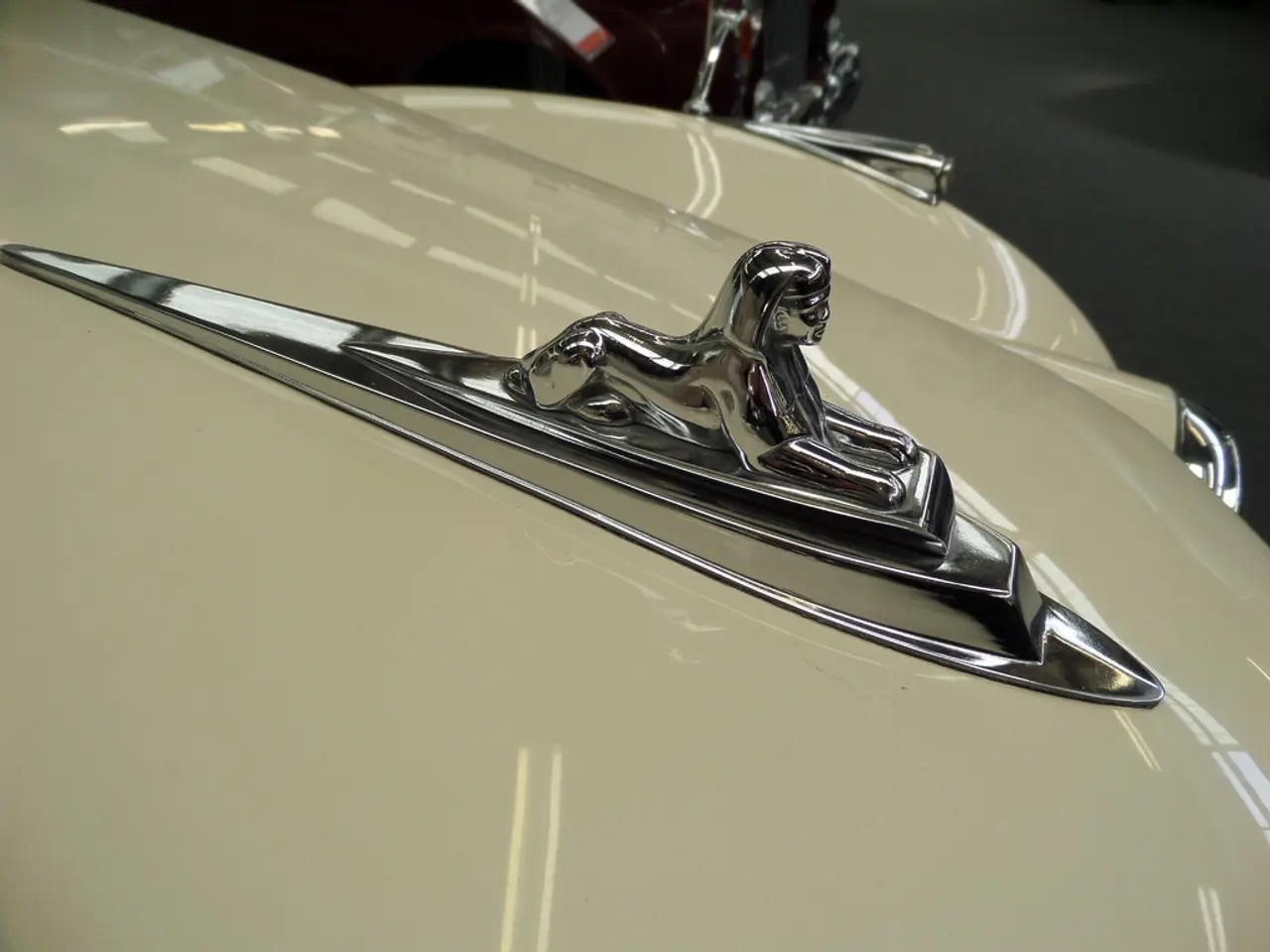Jaguar's CEO, PB Balaji, supports the company's 'Copy Nothing' rebrand, despite varying opinions on the move
Jaguar Embraces Electric and Ultra-Luxury Future
Jaguar, the iconic British car manufacturer, is embarking on a bold new journey, transitioning towards an all-electric future and positioning itself as a premier player in the ultra-luxury electric vehicle (EV) market.
The transformation was kick-started in December 2024 with the unveiling of the "Copy Nothing" concept car, a departure from Jaguar's traditional design direction that has sparked excitement among customers and criticism from some fans. According to Rawdon Glover, Jaguar's Managing Director, the brand's new strategy is a test of whether it can reinvent itself as an electric brand for the ultra-wealthy without losing its soul.
The "Copy Nothing" concept car is just the beginning. Two more EVs are expected to follow: a coupe and a large SUV, each launching roughly a year apart. All new EVs will sit on a dedicated EV platform, with no entry-level models in sight. The first electric model under Jaguar's new strategy, a sleek electric grand tourer, is due later this year.
Jaguar's focus on the ultra-luxury EV market could result in up to 85% of existing customers being lost, Glover admitted. However, the focus of buyers for these new EVs is more on design and craftsmanship than the powertrain, according to him. The new lineup includes a grand tourer, a coupe, and a large SUV, each designed to rival Bentley's first electric model. Under the rebrand, Jaguar aims to target the same clientele as Bentley.
The new strategy aims for fewer cars, higher margins, and a sharper brand identity. The sales peak of nearly 181,000 units in 2018 is unlikely to be repeated under the new strategy. However, Jaguar remains committed to quality and market expectations, which could strengthen its brand loyalty among luxury customers while attracting new EV buyers.
The move towards electric and ultra-luxury vehicles has not been without controversy. Former U.S. President Donald Trump labeled Jaguar's new direction a "total disaster." However, Jaguar's new CEO, PB Balaji, has urged comparisons with competitors rather than political rhetoric.
Jaguar's strategic focus on the ultra-luxury EV market involves competing against established luxury brands like Tesla, BMW, and Mercedes with premium electric SUVs and sedans. The company is positioning itself to capture about 10-12% of the luxury EV market, leveraging emerging markets and ESG-driven circular economy principles as part of its "Reimagine" strategy under new leadership.
The emphasis on sustainability is also reflected in Jaguar Land Rover’s extensive renewable energy initiatives at manufacturing sites, such as large-scale solar installations supporting EV production and infrastructure, advancing both operational emissions reduction and green energy use. Jaguar has pledged net-zero emissions by 2039 and is investing heavily in new EV manufacturing facilities and battery production within the UK.
In the short term, challenges include U.S. policy backlash and supply chain complexities, potentially affecting sales momentum. However, Jaguar’s long-term EV roadmap and factory investments signal confidence in growth and customer adaptation within the luxury EV segment.
In conclusion, Jaguar's EV transition strategy is a high-investment, sustainability-driven rebrand focusing exclusively on ultra-luxury electric vehicles built on modular platforms optimized for performance and range. The company aims for a sizeable slice of the luxury EV market by delivering premium models appealing to affluent, eco-conscious consumers, supported by new manufacturing and renewable energy infrastructure. Early delays and market challenges have slowed immediate sales boosts, but Jaguar maintains commitment to electrification and premium positioning, poised to reshape its customer base toward ultra-luxury EV buyers.
[1] The Guardian [2] Autocar [3] Jaguar Land Rover [4] Bloomberg [5] Reuters
- Jaguar, in line with its plans for an all-electric future and ultra-luxury positioning, is set to introduce three new electric vehicles in the coming years, challenging rivals like Tesla, BMW, Mercedes, and Bentley.
- With the unveiling of the "Copy Nothing" concept car and subsequent electric models like a grand tourer, a coupe, and a large SUV, Jaguar aims to tap into the market for eco-conscious, affluent buyers, pursuing a strategy focused on quality, sustainability, and design.
- Despite facing criticism and potential loss of up to 85% of existing customers, Jaguar remains dedicated to its goal of capturing 10-12% of the luxury electric vehicle market by 2029, targeting the same clientele as Bentley and bolstering its brand identity through investments in new manufacturing facilities and renewable energy initiatives.
- In an effort to reduce its carbon footprint, Jaguar Land Rover is incorporating renewable energy sources like solar power into its manufacturing sites, supporting the production of electric vehicles and associated infrastructure, and aiming for net-zero emissions by 2039.




